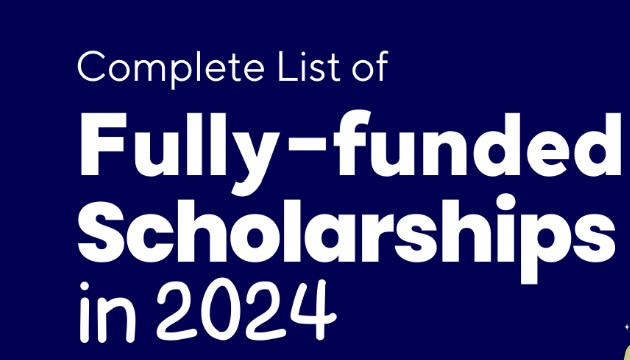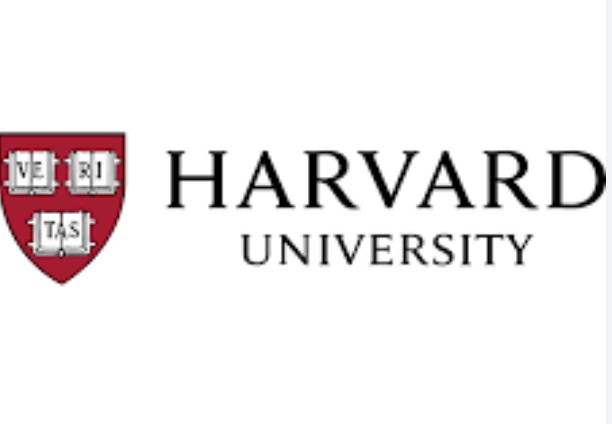Choosing the Best Scholarship: A Guide to Notable Scholarships and How to Find the Right Fit
Finding the “best” scholarship depends on your individual circumstances, such as your field of study, academic achievements, financial need, and personal background. There are many prestigious scholarships available globally, as well as numerous local and institutional scholarships. Below is an expanded overview of some of the most highly regarded scholarships and guidance on how to…
Finding the “best” scholarship depends on your individual circumstances, such as your field of study, academic achievements, financial need, and personal background. There are many prestigious scholarships available globally, as well as numerous local and institutional scholarships. Below is an expanded overview of some of the most highly regarded scholarships and guidance on how to find the best scholarship for you.
1. Notable Global and National Scholarships
These scholarships are well-known for their competitiveness, prestige, and substantial financial aid. Depending on your goals and qualifications, any of these could be considered among the best options:
- Fulbright Program
- Overview: The Fulbright Program offers international educational exchange opportunities to students, scholars, and professionals across various fields. It funds study, research, and teaching opportunities in over 140 countries.
- Who It’s For: Primarily graduate students, early-career professionals, and researchers. The program supports academic projects and cultural exchange.
- Benefits: Covers tuition, airfare, living stipends, and health insurance for the duration of the program.
- Rhodes Scholarship
- Overview: One of the world’s oldest and most prestigious scholarships, the Rhodes Scholarship funds full-time postgraduate study at the University of Oxford in the United Kingdom.
- Who It’s For: Exceptional students with leadership potential, commitment to public service, and academic excellence.
- Benefits: Full tuition, living expenses, and other necessary fees for up to three years.
- Gates Millennium Scholars Program
- Overview: Funded by the Bill & Melinda Gates Foundation, this program provides scholarships to outstanding minority students, helping them pursue undergraduate degrees.
- Who It’s For: High-achieving students from ethnic minorities (African American, American Indian/Alaska Native, Asian Pacific Islander American, Hispanic American) with financial need.
- Benefits: Covers the full cost of attendance for undergraduate programs, with additional support available for graduate degrees in specific fields such as computer science, education, and public health.
- National Merit Scholarship Program
- Overview: This U.S.-based scholarship awards high school students based on their performance in the PSAT/NMSQT. It is a highly competitive, merit-based scholarship.
- Who It’s For: High school students who score highly on the PSAT/NMSQT and demonstrate academic excellence.
- Benefits: Scholarships range from $2,500 to more substantial awards depending on the student’s academic performance and chosen institution.
- Jack Kent Cooke Foundation Scholarship
- Overview: This scholarship provides financial support to high-achieving students with financial need, covering both undergraduate and graduate education.
- Who It’s For: U.S. students with a strong academic record and demonstrated financial need. There are also scholarships specifically for community college students transferring to four-year institutions.
- Benefits: Up to $55,000 per year for undergraduate study and substantial financial support for graduate degrees.
- Pell Grants (U.S. Federal Aid)
- Overview: Although Pell Grants are not technically scholarships, they are crucial federal grants that provide financial aid to low-income undergraduate students in the U.S.
- Who It’s For: Undergraduate students with significant financial need.
- Benefits: The amount of funding varies based on financial need, with a maximum award of approximately $7,000 per year (subject to change based on federal policies).
2. Local and Institutional Scholarships
While global and national scholarships receive the most attention, many local and institution-specific scholarships can be just as valuable. These can be awarded based on merit, financial need, leadership, community involvement, or unique talents.
- University-Specific Scholarships:
- Many universities offer scholarships tailored to their students. These can range from need-based scholarships to awards for academic excellence, athletics, or specific fields of study.
- Some examples include:
- Harvard College Financial Aid: Harvard offers generous financial aid packages based on need, making it possible for students from lower-income backgrounds to attend without taking on large debts.
- Stanford University Scholarships: Stanford offers need-based and merit-based scholarships, particularly through their Financial Aid Office for both undergraduate and graduate students.
- Local Scholarships:
- Local community organizations, foundations, and businesses often provide scholarships to students in their area. These scholarships can be smaller in monetary value but can help cover educational expenses and can be less competitive than national scholarships.
- Example: Community Foundations in various regions often offer grants to students from local high schools or specific demographics (e.g., students pursuing STEM fields, women in business).
3. Finding the Best Scholarship for You
To determine which scholarship is best for you, consider the following factors:
- Field of Study: Certain scholarships are designed for students in specific disciplines. For example, the Gates Cambridge Scholarship supports fields like public health, medicine, and technology, while the Knight-Hennessy Scholars Program focuses on leadership in areas like business, law, and engineering.
- Academic Achievements: Merit-based scholarships like the National Merit Scholarship or Rhodes Scholarship require top academic performance and often leadership and community involvement.
- Financial Need: Scholarships like the Gates Millennium Scholars Program and Pell Grants prioritize financial need. If covering educational expenses is a primary concern, look for need-based scholarships and grants.
- Location: Some scholarships are location-specific, either requiring you to be a resident of a particular country, state, or region. Research local scholarships and those tied to specific institutions in your area.
- Eligibility Requirements: Always check the eligibility criteria to ensure you meet the qualifications before applying. Some scholarships have specific criteria such as citizenship, academic standing, or field of study.
4. Where to Search for Scholarships
There are numerous resources available for students searching for scholarships. Here are a few recommended tools:
- Scholarship Databases:
- Fastweb: A comprehensive search engine that matches students with scholarships based on their profile and preferences.
- Cappex: Offers personalized scholarship recommendations and detailed information about scholarships.
- College Board Scholarship Search: Provides access to a large database of scholarships, financial aid, and internships.
- University Financial Aid Offices: Most universities have a financial aid office where students can find information about institutional scholarships, grants, and fellowships.
- Educational Counselors and Advisors: If you’re in high school or attending a university, seek guidance from your school counselors or academic advisors. They can help you identify relevant scholarship opportunities and assist with applications.
Conclusion
Determining the best scholarship for you requires a careful evaluation of your personal goals, academic achievements, financial situation, and eligibility. Scholarships like the Fulbright Program, Rhodes Scholarship, and Gates Millennium Scholars Program are prestigious and offer substantial financial aid, but don’t overlook local and university-specific opportunities that may be more tailored to your needs.
Use online scholarship databases, consult with educational advisors, and apply to multiple scholarships to maximize your chances of success. By focusing on your strengths and matching them with the right scholarships, you can find the best opportunity to support your educational journey. Good luck!






